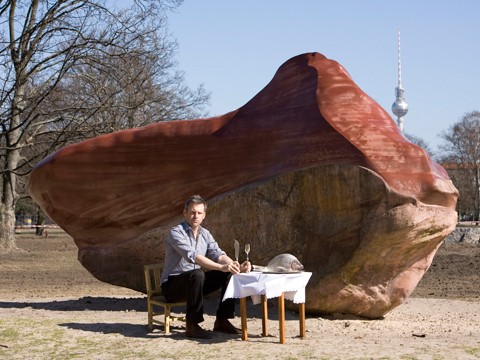|
As
part of this summer’s series of Listening Proposals by the
EBU’s Ars Acustica group, Kunstradio presents a production by
Deutschlandradio Kultur from 2013.
Song Buslines describes, through sound, the routes of 'long-haul' bus trips along the east coast of Australia. Song Buslines takes its inspiration from the 'songlines' of Indigenous Australia, where song as oral tradition assists in navigation of the land or ‘country.’ Here, truck stops and town names replace the geographical markers of the natural world. Each 'line' traces a route of the now defunct McCafferty’s Bus Service. At the height of the company’s powers towards the end of the millennium, it had established a vast road network of routes from its headquarters in Toowoomba, Queensland. By criss-crossing this network, customers could travel day and night from Melbourne to Cairns (via Toowoomba) or from Darwin to Sydney (via Toowoomba). The composer, having spent his childhood in Toowoomba, came to experience these bus routes, with their ever expanding spirals, as a line of flight towards a wider world. 'Song Buslines' is an attempt to map this movement. The original term 'songline' was popularised by British travel writer Bruce Chatwin in his book of the same name, first published in 1986 (the heyday of McCafferty’s). The word denotes the routes by which some indigenous Australians are able to navigate very precise routes across large expanses of land by learning and singing songs that refer to the natural objects they and their ancestors encountered. Furthermore, songs that describe particularly long routes could traverse areas where several indigenous languages were spoken, by favouring melodic contour and rhythm instead of talking. In other words, songs can pass from one people’s country to another. Following the publication of Chatwin's book, the term 'songlines' has itself come to be appropriated by indigenous Australians, although ironically the conceptual underpinnings necessary to construct a master signifier such as 'songlines’ are derived solely from a European ordering of the world. In Song Buslines, the oblique reference to bus routes in sound as 'songlines' is a playful attempt to reappropriate the word. It is not intended to trivialise either the original and/or post-colonial cultural practice of indigenous ‘songlines,’ but to avoid the fetishisation, museumification or cultural over-determination of the concept. Indigenous Australia does not acknowledge any separation between the spiritual and physical (or material) worlds. For European Australia, this separation is very much apparent at the end of a twenty-four hour road trip on a bus. The body and suitcase may have arrived, but the heart is several thousand kilometres back down the road. Year of production: 2013 Voice, electric piano, organ, electronics: Thomas Meadowcroft String quartet: Biliana Voutschkova (violin), Mari Sawada (violin), Daniella Strasfogel (viola), Boram Lie (cello) Electric guitar: Rico Repotente Pedal steel guitar: Anthony Burr Sound engineer: Thomas Monnerjahn Sound editing: Eugenie Kleesattel Producer: Deutschlandradio Kultur (Marcus Gammel) Links: Ars Acustica Sound: http://cdn.dradio.de/audio/dkultur/featurezumnachhoeren/song-buslines.mp3 |

PROGRAM
CALENDAR
CALENDAR
